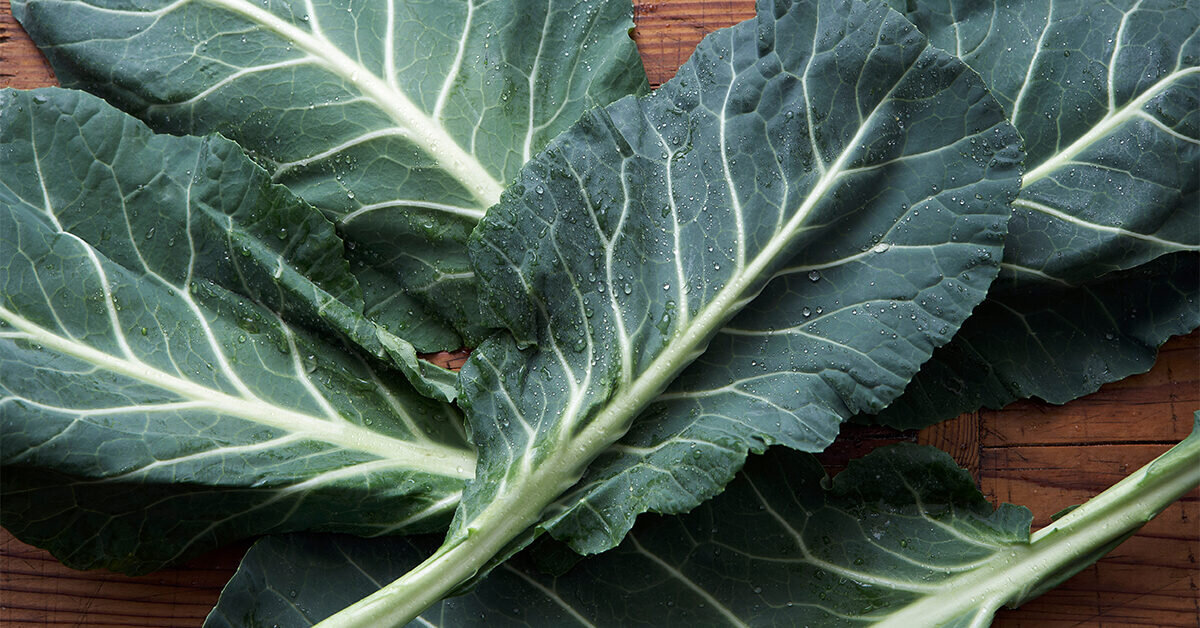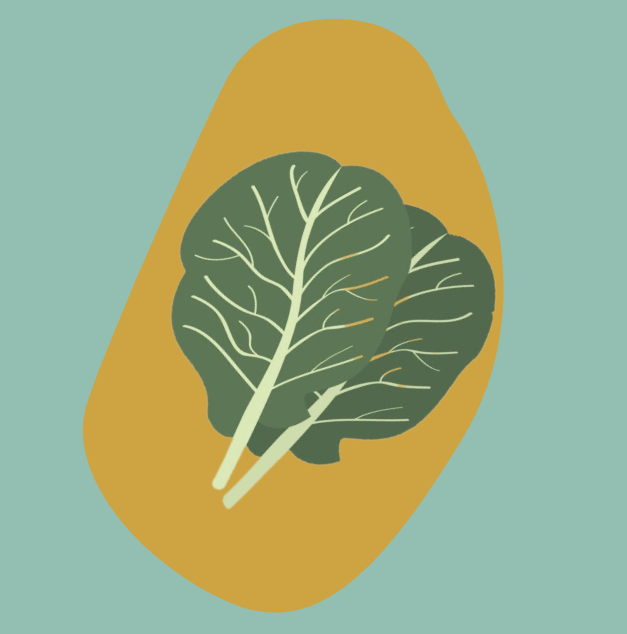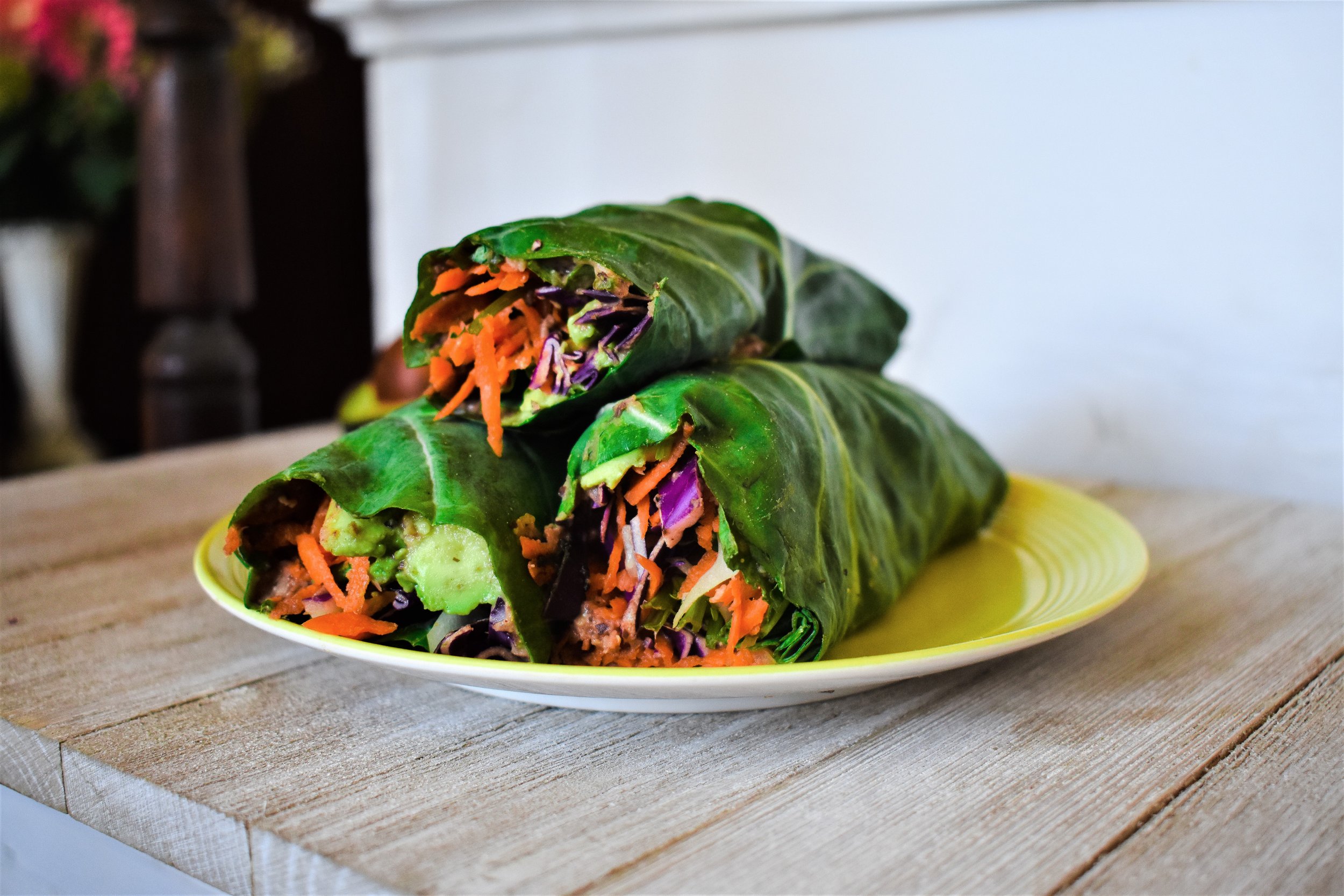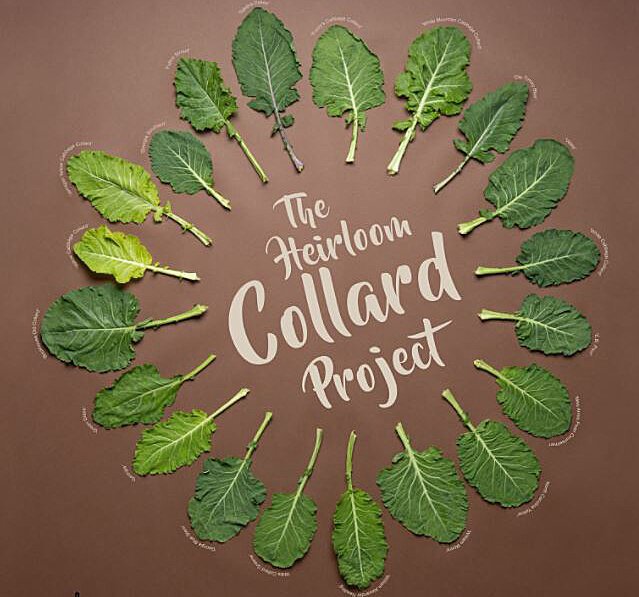
North Carolina Collards
A Southern culinary tradition loaded with history and flavor.
Centuries of Collards
From Mediterranean shores to Southern kitchens…
…collards have a long and storied history. As a member of the Brassica oleracea species (which also includes kale, cabbage, and broccoli), collards evolved on the coastline of the Mediterranean Sea. From Greek and Roman gardens, collards and their fellow brassicas spread throughout Western Europe and, eventually, to the Americas. There, collards were a staple crop, especially for enslaved Africans who had to scrape together meals from meager leftovers. Today, collards maintain their central place in Southern and Soul cuisine; no traditional meal is complete without collards stewed with smoky meat and swimming in potlikker.
With our mild cool seasons and well-drained soils, North Carolina is the third leading producer of collards in the nation, behind South Carolina and Georgia. This makes North Carolina one of the best places to source collards directly from local producers, farmers’ markets, and restaurants!
-

Collards in the Kitchen
Not only are collards rich in essential vitamins and minerals — such as folate and vitamins A, C, and K — but they’re delicious as well! With a perceptible, slightly bitter taste that mellows after frost, collards are a versatile vegetable that can be used in stews, salads, sandwiches, curries, and more! Looking to include more of this delectable, healthy green in your life? Check out our recipes further below!
-

Cultivating Collards
Collards thrive in North Carolina and can easily be grown in a backyard garden! Like other brassicas, collards are cool-season crops, so they should be started in early spring and/or fall. Once in the ground, collards can be harvested young for tender salad leaves or allowed to mature. You can continuously harvest collards by cutting off a few leaves at a time; they grow back quickly, ensuring months of healthy greens!
How Do You Collards?
With such a wide range and storied history, it’s no surprise that everyone has their special twist on collards. To share these diverse celebrations of all things collards, we invite you to talk about how you do collards. Take some inspiration from NCLFC members and representatives, or snap a picture of your favorite collard recipe and share it on Instagram with the hashtag #howicollard. Be sure to tag us @cefsnc to spread the word!
Farm to Fork
There are always collards available in the average supermarket, but they taste best when grown and harvested right down the road! Luckily for us, collards grow well in North Carolina and are widely available at farm stands and farmers’ markets across the state. Don’t quite know where to start? No worries! In collaboration with the Visit NC Farms app, we’ve put together a statewide “Collards Trail” advertising some of the best farms, markets, and restaurants to sample collards from. If you are interested in an even more curated experience, download the Visit NC Farms app to find your nearest collards source!
Breeding Better Brassicas
Revitalizing Heirloom Collards in Buncombe County
Surely there’s no way to improve upon such a classic as collards, right? Author and farmer Chris Smith will change your mind on that. Through his nonprofit organization, the Utopian Seed Project, Smith and his team celebrate and promote crop diversity by conducting regional crop variety trials at their experimental farm in Leicester, NC. Amongst exotic tropicals and little-known native perennials such as moringa and American groudnuts, Southern classics like okra, sweet potatoes, and collards flourish.
What are Heirlooms — And Why Should We Care?
However, you probably won’t find the varieties Smith grows in your average supermarket. In collaboration with the Heirloom Collards Project – a national alliance of regional seed savers that aims to preserve rare collard varieties – the Utopian Seed Project grows over a dozen types of heirloom cultivars. Heirlooms are open-pollinated crop varieties that can be traced back at least 50-100 years. Unlike hybrid crops, which account for most of the produce on our supermarket shelves, heirlooms have greater genetic diversity and often demonstrate traits not observed in conventional cultivars. This broad genetic base provides a wide range of traits for growers to select from, such as drought or frost tolerance, thus making them more resilient to the effects of climate change. Furthermore, greater genetic diversity reduces the chance that an entire crop will be lost to pests or pathogens. All these traits make heirloom fruits and vegetables well-suited to local food systems.
Words into Action
After retrieving the seeds from the USDA, Smith started the process of testing and refining the varieties, selecting specifically for cold and frost tolerance, which is particularly important for his fellow farmers in Western North Carolina. Apart from a mishap involving rogue goats in the first year, Smith has observed amazing progress and already has a second generation of frost tolerant collards selected from those that survived to a crisp 8°F the first year. But Smith isn’t satisfied with just collecting and saving seeds like stamps – he wants to get them out into the community, saying:
“It’s always been our intention to get peoples’ hands in the earth…[and part of that] is getting seeds from the dusty shelves and into people’s hands.”
With the help of other local businesses, the Utopian Seed Project has been working to distribute heirloom collards seeds to families and community gardens through Buncombe County. This initiative not only acts as a valuable food security and education tool, but is an ingenious way to test and select seeds on a community scale, thus ensuring that the hardiest, tastiest varieties are passed on.
While we won’t be seeing these collards on supermarket shelves anytime soon, there are other ways to get involved! Purchase and grow heirloom varieties from your regional seed saver organizations or ask your local farmers and farmers’ markets if they offer heirloom crops.
To learn more about the Utopian Seed Project and Heirloom Collards Project, check out the links below!
The Utopian Seed Project is a 501(c)(3) nonprofit dedicated promoting crop biodiversity in the Southeast. Photo credits to the Utopian Seed Project.
Chris Smith, founder and executive director of the Utopian Seed Project. Photo credits to Chris Smith.
The Utopian Seed Project’s experimental farm is nestled in the Appalachian Mountains of Buncombe County. Photo credits to The Laurel of Asheville.
Recipes
Traditional Southern collards are absolutely delicious, but there are dozens of ways to enjoy this incredibly versatile vegetable! The sturdy leaves hold well in stews and as wraps, and their slightly earthy flavor complements a range of sweet, salty, spicy, and acidic ingredients. Explore some of our favorite recipes below to get inspiration for your next meal!
Collard Sides
Classic Collards
Modern Twists
Other Resources
Still curious about collards? Check out these sites and featured articles to learn more about collards, how to grow and prepare them, and their place in North Carolina agriculture.











